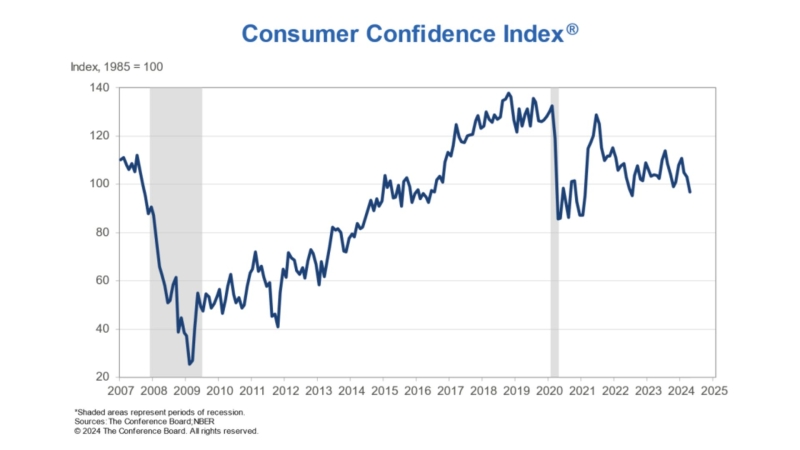
New York Appeals Court Sides With Fannie Mae

Decision in a foreclosure case could have an impact on legislation pending in the Empire State.
The New York Court of Appeals has ruled in favor of the Federal National Mortgage Association (Fannie Mae) in a foreclosure case that could have an impact on legislation awaiting New York Gov. Kathy Hochul’s signature.
The court’s six-judge unanimous decision agreed with Fannie Mae’s contention that the New York appellate court erred in concluding that the GSE was time-barred from restarting a foreclosure procedure because it was beyond the state’s six-year statute of limitations.
The appeals court pointed out that the defendant, Maxi Jeanty, whose Brooklyn home had been foreclosed on in 2008, had entered into a Home Affordable Modification Trial Payment plan and made a total of seven payments from April 2009 through March 2010, each in an amount exceeding that of the regular payments required under the original mortgage.
The court noted that the first three payments were required under the plan, but the remaining four were not.
That action led the court to conclude that the additional payments established circumstances amounting to an acknowledgement by Jeanty of more being due and an inferred promise to pay the remaining balance.
The court also concluded that the six-year statute of limitations period began again in March 2010 and that the 2015 foreclosure action was within the statute of limitations.
Fannie Mae officials declined to comment.
A spokesman for the attorney who is representing Jeanty in the foreclosure case said the case is not completed because the appeals court is reviewing a motion to reargue.
Dan Harris, executive director of the Jamaica, New York, firm of Brian McCaffery at Law, said in an e-mail Friday that, in this case the court of appeals has created an argument on behalf of Fannie Mae.
“Namely that the seven payments made by the borrowers could be separated into three trial payments and four extra payments.,” said Harris, who is not an attorney. “We were unable to rebut this during oral argument because no such argument had ever been raised in the lower court or the appellate court - It wasn't briefed to the court of appeals, so it was a new unexpected argument (one that the court should not have considered). Here, the court created a fact pattern that was not in the record.”
Harris said his firm is providing HAMP documentation that shows that HAMP Guidelines in effect at the time that the Jeantys made their seven trial payments, state: "Length of Trial Period: The Trial Period will last 90 days (three payments at modified terms) or longer if necessary to comply with investor contractual obligations."
The court of appeals, Harris said, has a history of refusing to decide cases on arguments not raised by the parties.
“To be clear, in the Jeanty case, Fannie Mae never argued that the payments were separate - the word payment appears 1,092 times in Fannie Mae's papers before the Court and never do they argue that only the first 3 payments were trial payments - Fannie Mae always argues that all 7 payments reset the statute of limitations (not just the 4 payments the Court used).”
Harris said that in their opinion, the court should take notice of the fact that Fannie Mae guidelines for HAMP most certainly provided for more than three trial payments.
“If you poll the community of foreclosure attorneys and advocates, you will find that on many, many occasions, borrowers make more than 3 trial payments, because the lender doesn't have the final modification paperwork ready yet,” Harris said. “That's hardly a reason to allow the banks to skirt, manipulate the statute of limitations..”
In May, the New York State Senate easily passed the New York Foreclosure Abuse Prevention Act, a controversial bill aimed at foreclosure reform.
Lawmakers behind the legislation argued the intent was to eliminate abusive and unlawful litigation tactics that have been adopted and pursued by lenders in mortgage foreclosure actions to manipulate the law and the courts and yield to expediency and the convenience of mortgage bankers and servicers.
The issue arose out of a 2021 New York appeals court decision in the Freedom Mortgage Corp. vs Engel case, which some legislators said had given mortgage lenders and their servicers the ability to “unilaterally manipulate, arrest, stop and restart the limitations period at will,” to the detriment of New York homeowners dealing with foreclosure actions.
As a result, lawmakers claimed, courts throughout the state have been bombarded with motions made by lenders to reopen foreclosure cases that had been dismissed years ago on statute-of-limitations grounds.
The court’s decision in the Engel case allowed for lenders to voluntarily pause the state’s six-year statute of limitations countdown on foreclosures and reserve the right to restart the action again, as long as it's done within six years.
The result, according to lawmakers, was that foreclosure actions were no longer time-barred and countless homeowners were trapped “in a state of judicial purgatory with the fate of their homes suspended in incertitude.”
Proponents of the law also pointed out that some lenders in the state have had a longstanding reputation for marginalizing the statute of limitations through stopping and restarting actions that can leave homeowners in foreclosure for a decade or more, and that those practices disproportionately harmed minority communities.
Opponents of the bill argued it would severely limit the mortgage holders right to reach the merits of a foreclosure claim and encourages borrowers to to delay foreclosure proceedings and ignore loss mitigation and debt restructuring efforts made by lenders.
The bill, they maintained, also penalized lenders for any procedural errors that, in some cases, could result in a defendant receiving a free house in a windfall.
They also said it was also harmful to lenders because, with limited exceptions, the bill did not “grandfather” or exclude foreclosure proceedings that are already close to or beyond the six-year statute of limitations.
Brian McGrath, a partner at the New York City law firm Hinshaw and Cullbertson and an opponent of the foreclosure bill, applauded the appeals court’s decision regarding the statute of limitations, saying it reaffirmed well settled law under New York’s General Obligations, and added that it further demonstrates that mortgage loans are dynamic contracts between borrowers and lenders.
“The dynamic nature is key to working to keep struggling borrowers in their homes, something the court of appeals recognized in the Engel decision,” McGrath said. “Thus, the legislation aimed at abrogating the Engel decision, which allows for borrowers to work in a dynamic manner with their lenders, is a peculiar way to help consumers."
McGrath added that the reality is that the legislation awaiting Hochul’s signature will benefit defaulted borrowers who game the system to delay their foreclosure proceedings, and will hurt the vast majority of homeowners who work with their lenders to get back on a performing path.
Hochul’s office did not respond to a request for comment on the appeals court decision or if she planned to sign the foreclosure bill.




